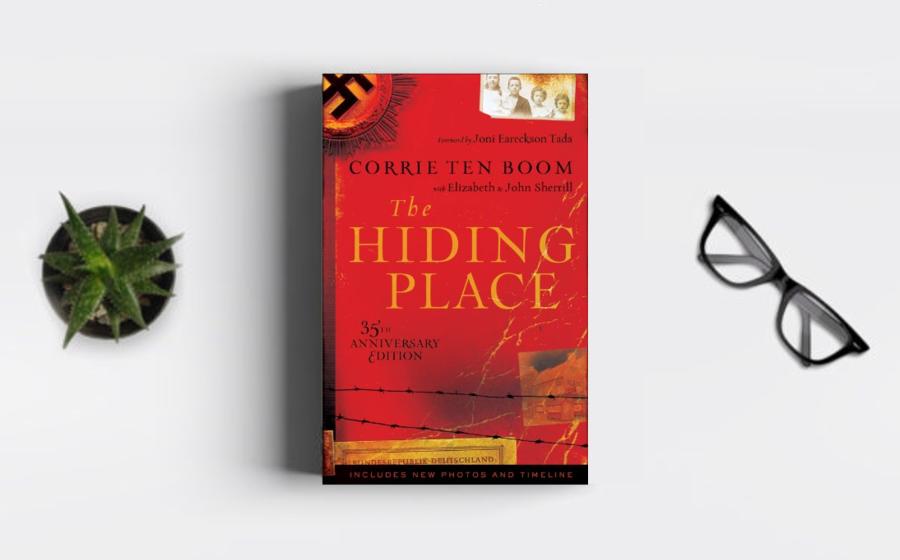"The Hiding Place" by Corrie ten Boom stands as a
beacon of resilience, faith, and forgiveness.
Chronicling the harrowing experiences of the ten Boom
family during World War II, this memoir transcends the
boundaries of personal suffering to offer profound
insights into the transformative power of faith in the
face of unimaginable adversity. In this review, we will
explore why "The Hiding Place" is celebrated as one of
the most inspirational books of all time, examining the
indomitable spirit of Corrie ten Boom, the themes of
faith and forgiveness woven throughout the narrative,
and the enduring impact of this extraordinary journey on
readers across the globe.
Published in 1971, "The Hiding
Place" recounts the true story of the ten Boom family's
courageous efforts to rescue Jews during the Nazi
occupation of the Netherlands. At the heart of the
narrative is Corrie ten Boom, a watchmaker by trade and
a woman of unwavering faith. The book opens with a
glimpse into the tranquil lives of the ten Booms in
Haarlem, painting a picture of a close-knit family
deeply rooted in their Christian convictions.
As
the Nazi regime tightens its grip on Europe, the ten
Boom family becomes increasingly involved in the Dutch
resistance, transforming their home into a hiding place
for Jews seeking refuge from persecution. The narrative
takes a dark turn when the family is betrayed, leading
to their arrest and imprisonment. The horrors of the
concentration camps, particularly Ravensbruck, become
the backdrop against which Corrie's faith is tested to
its limits.
One of the most compelling aspects of "The Hiding
Place" is the unwavering faith exhibited by Corrie ten
Boom, even in the bleakest of circumstances. Corrie's
journey unfolds as a testament to the triumph of faith
over despair, illustrating how spiritual resilience can
endure the harshest trials.
Corrie's steadfast
belief in God's providence becomes a guiding light
through the darkest hours of her internment. Her
reliance on prayer, scripture, and a deep communion with
God resonates with readers seeking inspiration in their
own spiritual journeys. Corrie's ability to find moments
of grace and divine presence amid the brutality of
Ravensbruck elevates "The Hiding Place" beyond a mere
historical account to a profound meditation on the
sustaining power of faith in times of tribulation.
Central
to the narrative of "The Hiding Place" is the theme of
forgiveness. Corrie's experiences in Ravensbruck, where
she witnesses and endures unspeakable atrocities, become
the crucible in which her understanding of forgiveness
is forged. The transformative power of forgiveness is
exemplified in Corrie's encounter with one of her former
captors years after the war.
The narrative
reaches its zenith when Corrie, speaking at a church in
Munich, comes face to face with a man who had been a
guard at Ravensbruck. The power of this moment lies not
only in the forgiveness extended by Corrie but also in
the profound transformation it elicits in the former
guard. Through Corrie's act of forgiveness, the
narrative communicates a universal truth about the
redemptive potential of grace, offering readers a
compelling example of how the choice to forgive can
break the chains of hatred and bring about healing.
"The Hiding
Place" resonates across time and cultural boundaries due
to its exploration of universal themes such as faith,
resilience, and forgiveness. Corrie ten Boom's story
becomes a timeless testament to the human spirit's
capacity to rise above adversity through the power of
faith and love.
Corrie's deep-rooted Christian
convictions, expressed through her acts of compassion
and forgiveness, offer a profound challenge to readers
of all backgrounds. The narrative invites reflection on
the nature of courage, the resilience of the human
spirit, and the transformative potential of faith in the
face of seemingly insurmountable odds.
Beyond its personal and
spiritual dimensions, "The Hiding Place" serves as a
call to compassion and resistance in the face of
injustice. The ten Boom family's actions during World
War II exemplify the moral imperative to stand against
oppression, even at great personal risk. The narrative
inspires readers to consider the ways in which
individual acts of kindness and resistance can
collectively shape the course of history.
The
book encourages readers to reflect on their own capacity
for moral courage and to contemplate the enduring
relevance of such courage in contemporary society. "The
Hiding Place" challenges individuals to examine their
responses to injustice and to consider how the
principles of compassion and resistance can guide their
actions in the pursuit of a more just and compassionate
world.
The narrative's enduring impact lies in its ability to transcend historical specificity and speak to the universal longing for hope, resilience, and compassion. "The Hiding Place" remains an enduring beacon of light, guiding readers through the depths of human suffering to the heights of spiritual triumph. Corrie ten Boom's story continues to inspire and challenge, offering a testament to the enduring power of faith, the resilience of the human spirit, and the transformative force of forgiveness.






